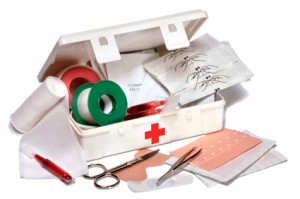Sleep apnea is a sleep disorder that affects millions of individuals worldwide, leading to disrupted sleep, excessive daytime fatigue, and potential health risks. However, the good news is that various treatment options are available to manage and alleviate the symptoms of sleep apnea. Let's explore these options, which range from lifestyle changes to medical interventions, to help you regain those restful nights.
 1. Lifestyle changes:
1. Lifestyle changes:Often, the first line of defense against sleep apnea involves making simple yet effective adjustments to daily habits. These changes can help reduce the severity of sleep apnea:
Weight management: Losing excess weight, if applicable, can significantly reduce the risk and severity of sleep apnea. Excess weight, especially around the neck, can contribute to airway obstruction.
Positional therapy: For some individuals, sleep apnea is more pronounced when sleeping on their back. Sleeping on one's side can help prevent airway blockage.
Diet and exercise: Healthy eating and regular physical activity can contribute to overall well-being and improve sleep quality.
Avoiding alcohol and sedatives: These substances can relax the muscles in the throat, increasing the likelihood of airway obstruction. Avoiding them, especially close to bedtime, can help.
CPAP therapy is one of the most common and effective treatments for sleep apnea. It involves the use of a CPAP machine that delivers a continuous stream of air through a mask worn over the nose or mouth. This airflow helps keep the airway open during sleep, preventing interruptions in breathing.
Similar to CPAP, BiPAP therapy delivers pressurized air, but with two different levels of pressure – a higher pressure for inhalation and a lower pressure for exhalation. This can be helpful for individuals who find it challenging to exhale against a high continuous pressure.
In some cases, surgical interventions may be recommended to address sleep apnea. Surgical options include:
Uvulopalatopharyngoplasty (UPPP): A procedure that removes excess tissue from the throat and palate, widening the airway.
Genioglossus advancement (GA): Surgery that repositions the tongue attachment to prevent airway collapse.
Maxillomandibular advancement (MMA): Repositioning of the upper and lower jaw to enlarge the airway.
Inspire therapy: An implantable device that stimulates the hypoglossal nerve to prevent airway collapse during sleep.
Dentists can provide custom-made oral appliances, which are worn during sleep to reposition the jaw and tongue, helping to keep the airway open. These appliances are a suitable option for individuals with mild to moderate sleep apnea.
Selecting the most appropriate treatment for sleep apnea depends on the severity of the condition, individual preferences, and the guidance of healthcare professionals. By exploring these treatment options, individuals with sleep apnea can work towards achieving more restful and uninterrupted nights of sleep, improving their overall quality of life.
Don't hesitate to contact us at 343 309 5289. We can help you choose the right establishment for you and assist you in your search.

Find a suitable senior residence